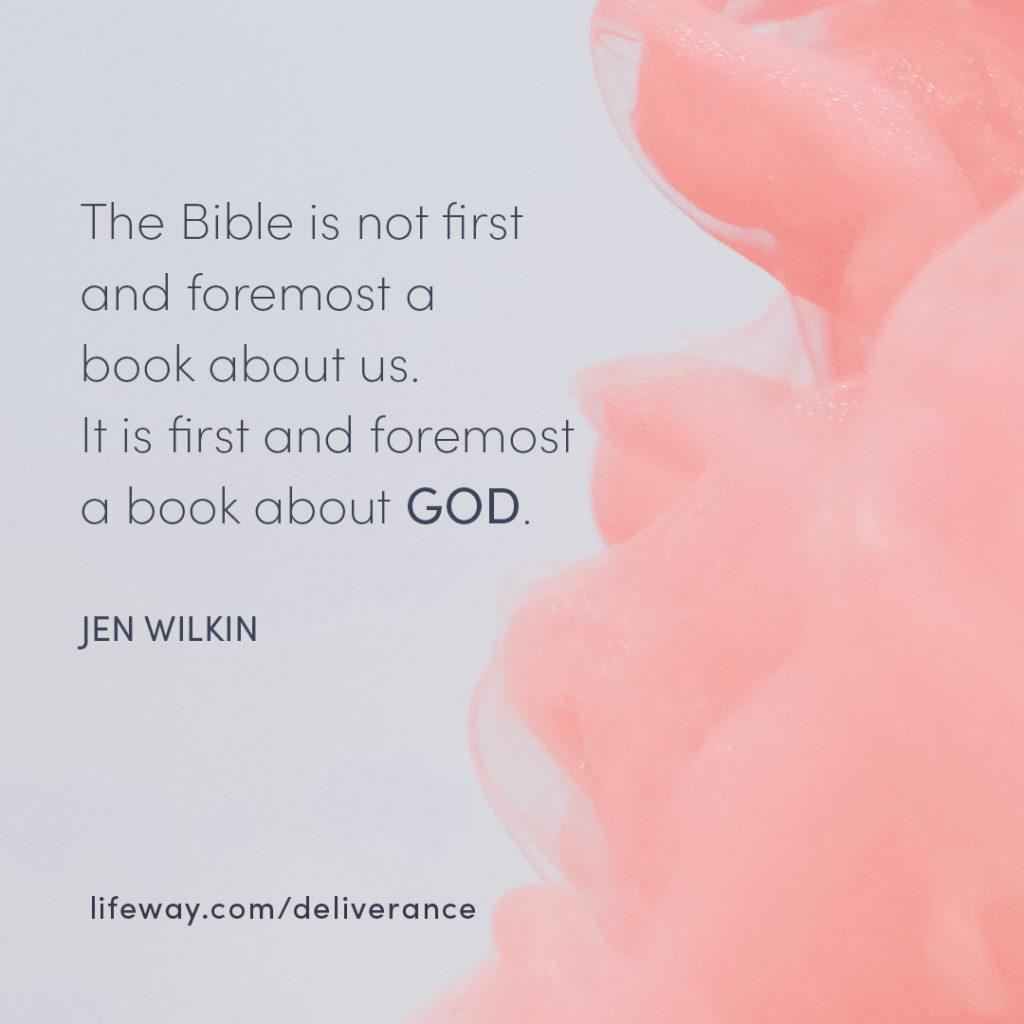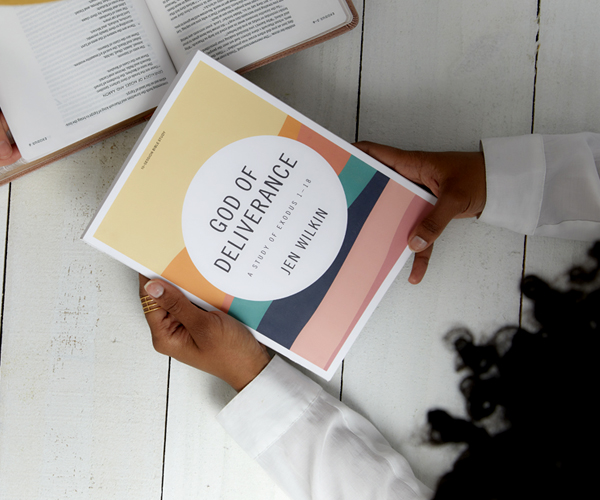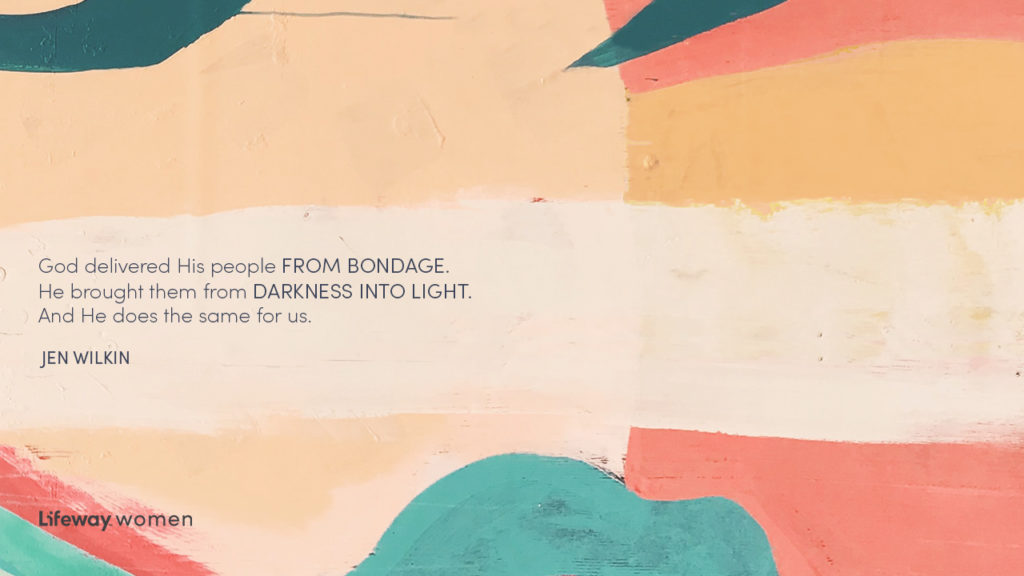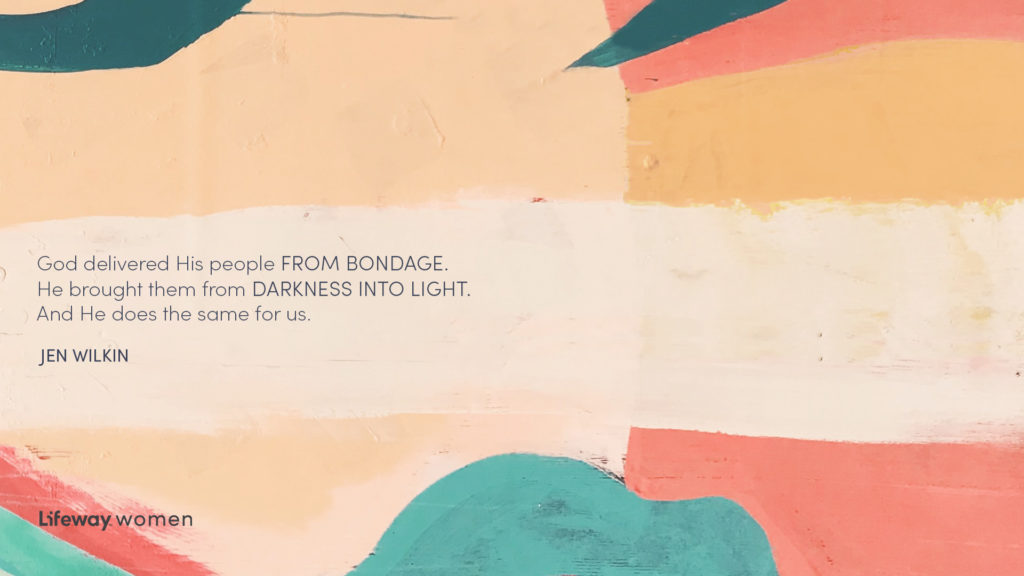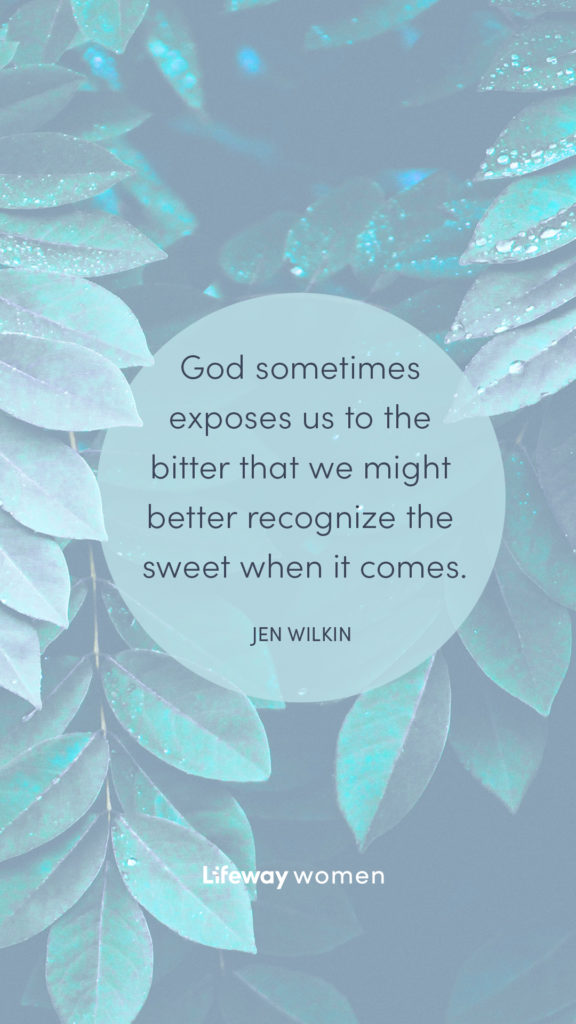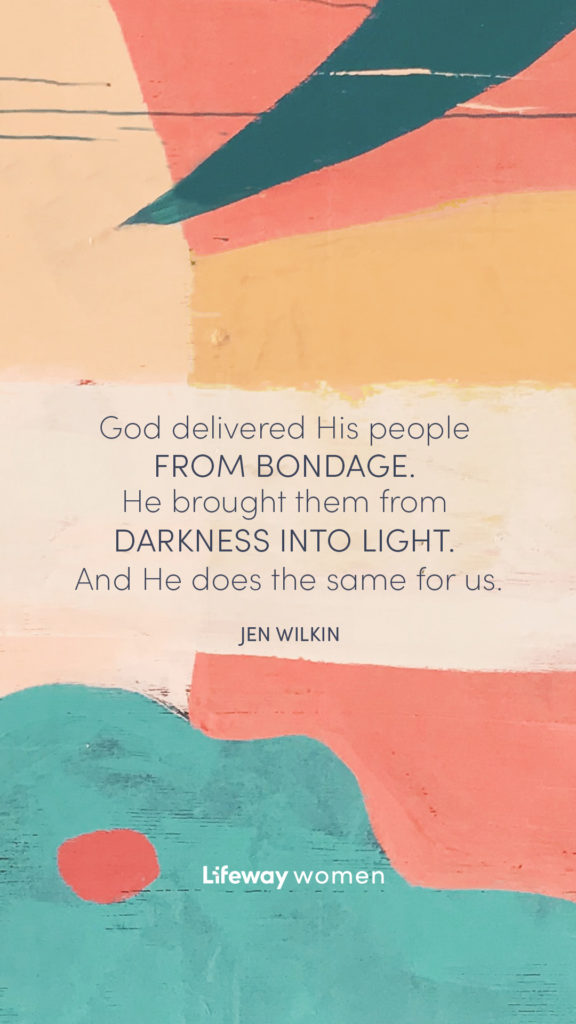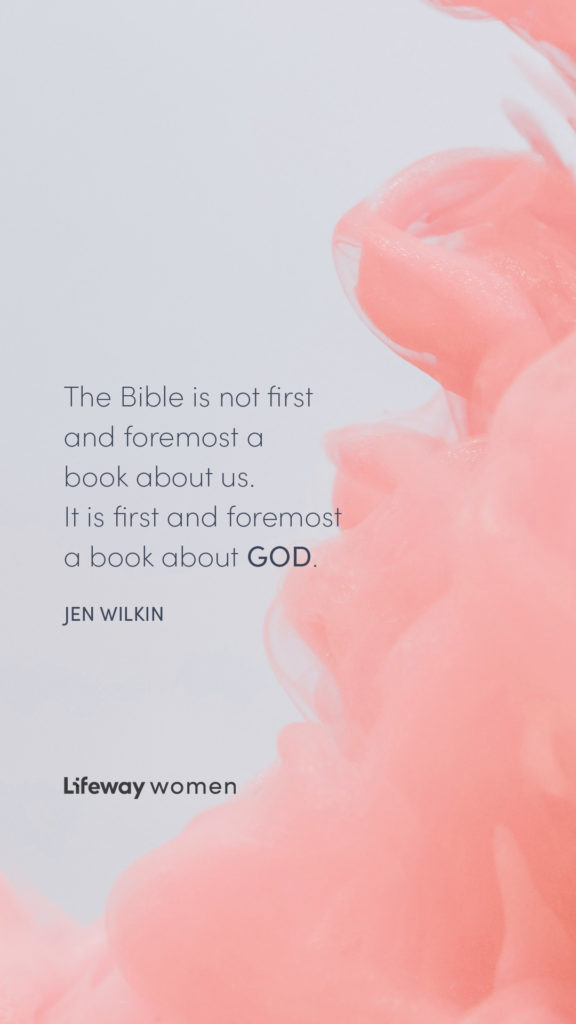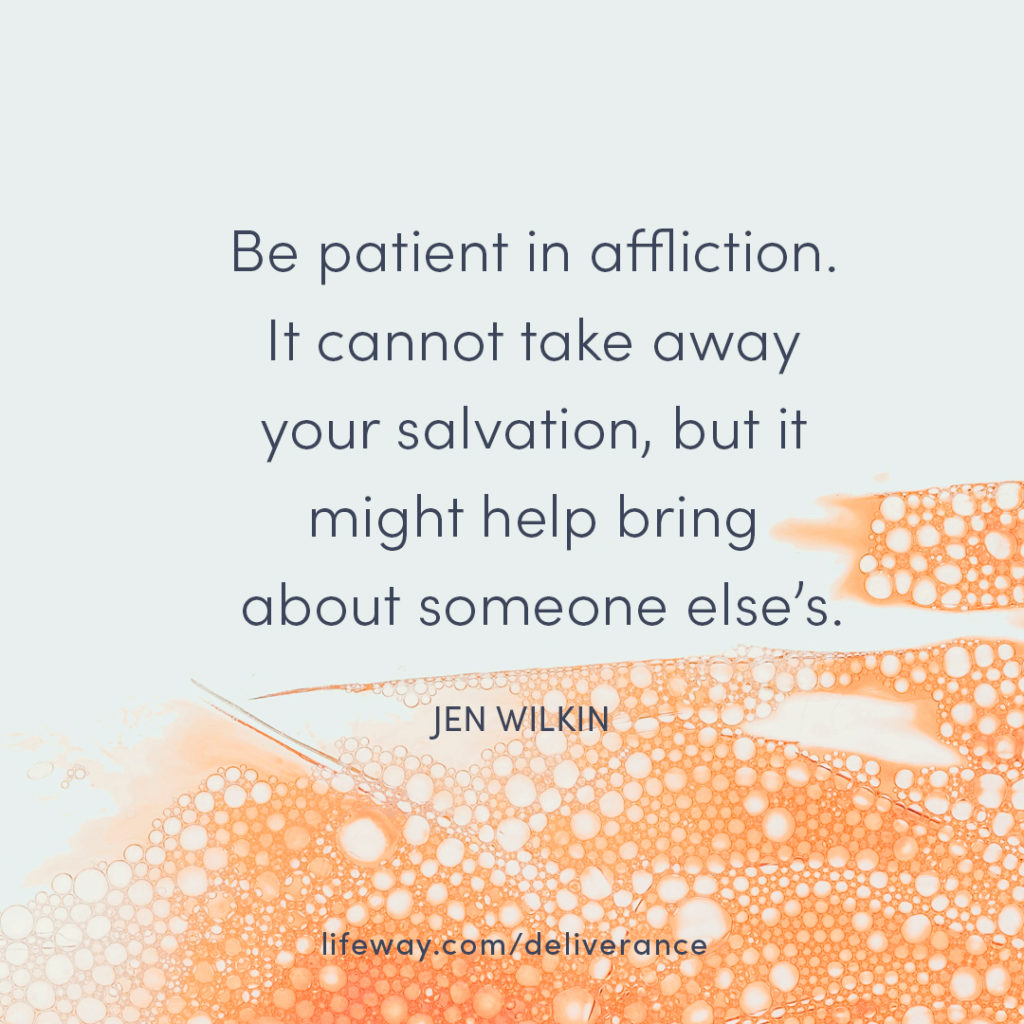Today we’re sharing an interview from the June issue of HomeLife with Jen Wilkin about her new Bible study, God of Deliverance: A Study of Exodus 1-18. You can order a copy of the June 2021 HomeLife Magazine here. See a free sample or purchase your copy of God of Deliverance by Jen Wilkin at lifeway.com/deliverance.
What prompted you to walk chronologically through the Old Testament through Bible studies like God of Creation, God of Covenant, and now God of Deliverance?
Jen: As with all of my studies, I want learners to gain not just insights about a particular book, but skills for reading the Bible as a whole. I find that most of us have to be dragged kicking and screaming to the Old Testament because it feels inaccessible to us. But without the foundational books of the Old Testament, we can only have at best a thin understanding of the New Testament. The NewTestament authors assume our knowledge of the Old Testament. I wrote these studies to help ensure their assumption is met. I, too, have found the Old Testament intimidating, but it doesn’t have to be. I hope these studies make it accessible to learners, and useful over the long-term for understanding the message of the Bible from beginning to end.
You have said that Exodus 1–18 are “18 of my favorite chapters in the whole Bible.” Why?
Jen: We often speak of having been “born again” — the phrase Jesus uses in His famous conversation with Nicodemus. But we don’t always meditate on the deep significance of that phrase or of how the concept is rooted in the earliest passages of the Bible. The first 18 chapters of Exodus are filled with birth language. Exodus is the birth narrative of the nation of Israel — a labor and delivery story, if you will. As such, it has much to teach us about our own delivery from death to life, by means of a strong deliverer.
How do the earliest books of the Bible provide understanding for all of Scripture and help us to read the Bible with more clarity and with “better eyes for interpretation”?
Jen: One of the most basic rules of interpreting the Bible is to “let Scripture interpret Scripture.” Familiarity with the New Testament can help us look backward at the Old and see where it was foreshadowing Christ. But familiarity with the Old Testament helps us learn how to read the New Testament as we should. The earliest books of the Bible set up the themes we see traced all the way through. For example, Luke’s birth narrative of Jesus draws on Exodus themes (Herod killing firstborn sons, a flight to Egypt, a wilderness temptation). The Gospel of John hyperlinks Genesis at every turn. The Book of Revelation, which has been subjected to more than its share of odd interpretations, also draws heavily on imagery and language from Genesis and Exodus. When we see these connections, we’re better able to determine why the New Testament authors wrote in the manner they did. Imagine reading only the last Lord of the Rings book, but never reading the first two. When we neglect the Old Testament, we essentially read only the second half of an epic story. When we study the Old Testament, the New Testament takes on its proper depth and breadth.
What is the connection between the event of the exodus and the nature of our own salvation, our deliverance from sin?
Jen: Exodus 1–18 can be seen as a metaphor for our justification. We’re led from death to life, from the domain of darkness to the kingdom of light, by our strong Deliverer, Mediator, and Intercessor, Jesus Christ. Exodus 19–40 can be seen as a metaphor for our sanctification. As those freed from slavery, we now receive God’s Law as a means for being a people set apart to do good works — not to earn His favor, but because we already have it as His children. We enjoy His daily presence. We partake in the ongoing gracious provision He has made for the forgiveness of the sins we still commit, and we long for the day we at last enter our promised inheritance.
In what way is Israel’s story our story?
Jen: Like Israel at Sinai, we’re in the in-between place, the time of testing in the wilderness. We have been ransomed from slavery to sin, and we await entry into the promised land. Just as Israel grumbled in the wilderness, so do we. We doubt God’s provision, though He has shown Himself mighty to save. We think with longing on the life we left behind, lying to ourselves that slavery to sin and death was better (or easier) than following God. Yet God perseveres in His steadfast love toward us, continually reminding us of His past faithfulness and beckoning us to trust in His ongoing provision. He instructs us in how to love Him and how to love our neighbor. He will indeed lead us to a full and final Sabbath rest in the new heaven and the new earth.
How does the exodus of the Old Testament help us understand the nature of the New Testament church?
Jen: Like Israel, we’re to see ourselves as a people called out, set apart for service to Yahweh alone. We must reject the gods our unbelieving neighbors devote their lives to serve — gods of self-reliance, self-promotion, self-protection, and self-sufficiency. And we must reject the golden calves we ourselves are tempted to fashion — diminished versions of God we believe we can manipulate or control. Though the world around us is set on storing up treasure on earth, we traverse the wilderness of this life with our eyes fixed on a city whose architect and builder is God. As we await that home, we seek to be known by our love of God and neighbor, imitating and following our true and better Moses — Jesus Christ.
What is your prayer for the women who journey through this Bible study?
Jen: My prayer is that they would be humbled and enlivened by the realization that the story of our redemption is ancient and enduring. And my prayer is that the Bible as a whole would feel more familiar and accessible, that its grand narrative would be more deeply imprinted on their minds, and that their hearts would respond with deeper adoration for God as a result.
Is there a plan for another Bible study, and will it pick up with Exodus 19?
Jen: Yes! We couldn’t just leave you there at the foot of Mount Sinai. You need the rest of the story! God of Freedom, a study of Exodus 19–40 will release in January 2022. It will continue the story of God’s faithfulness to His covenant people as they learn what pleases their heavenly King and how to live as a people set free.
Want to learn more about God of Deliverance? Watch the short video below or view a free sample and teaching video clips at lifeway.com/deliverance.
And here are some fun wallpapers for your desktop and phone! Click the images below to download.
Share on social media with the hashtag #GodofDeliveranceStudy, so we can learn together! We’ve included a few images below, featuring a quote from the study, perfect for Instagram.
